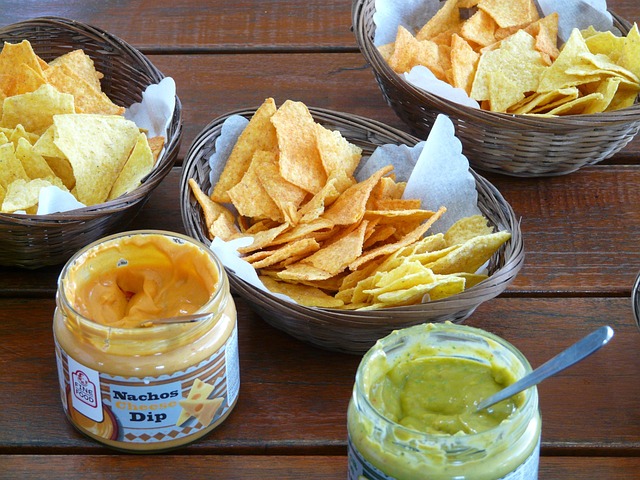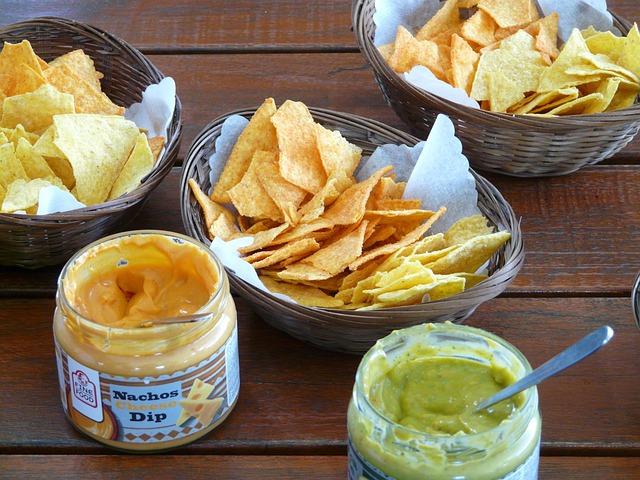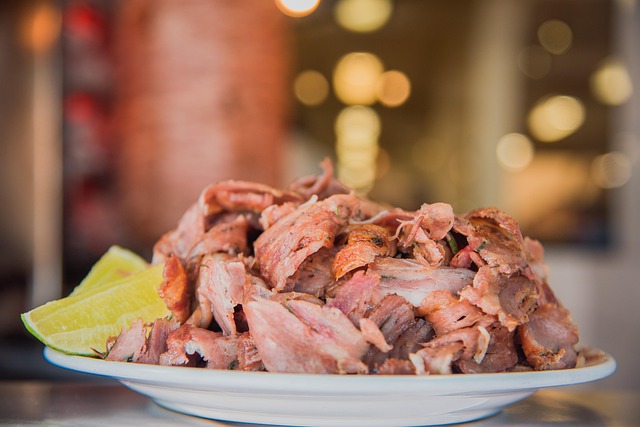For a health-conscious Mexican dining experience, prioritize restaurants committed to Non-GMO Tortilla Chips Donkey, sourced locally and ethically. Reputable establishments highlight non-GMO certifications, staff knowledge, and sustainable practices, ensuring culinary excellence and ethical standards. Donkey's Non-GMO chips, crafted from fresh, high-quality corn, offer a healthier alternative, catering to the growing demand for natural foods, while preserving Mexico's rich food culture.
“Discover the art of authentic Mexican cuisine with a focus on the iconic tortilla chip. This comprehensive guide explores the world of non-GMO tortilla chips, highlighting their health benefits and environmental impact. We navigate you through choosing top-tier Mexican restaurants dedicated to serving these wholesome treats, offering valuable insights on certifications to look for. Then, we dive into the traditional art of making homemade donkey-kneaded tortilla chips, comparing methods and showcasing their unique advantages. Indulge in a culinary journey, from regional restaurants to homemade delights.”
- Choosing the Best Mexican Restaurant for Non-GMO Tortilla Chips
- – Tips for identifying restaurants committed to quality ingredients
- – Importance of Non-GMO certifications and their impact on health
- The Art of Making Homemade Tortilla Chips
Choosing the Best Mexican Restaurant for Non-GMO Tortilla Chips

When searching for the perfect Mexican restaurant, especially one that offers homemade tortilla chips, it’s crucial to consider the quality and sourcing of their ingredients, with a particular focus on Non-GMO Tortilla Chips. Many health-conscious diners are now seeking out restaurants that prioritize using organic, non-genetically modified (Non-GMO) ingredients, ensuring a purer and more natural dining experience.
Look for establishments that proudly advertise their commitment to Non-GMO products, especially when it comes to tortilla chips. These restaurants often take pride in sourcing their ingredients locally and ethically, which can greatly enhance the overall dining experience. For instance, some Mexican eateries might partner with local farmers who practice sustainable farming methods, ensuring not only delicious but also environmentally friendly tortilla chips made from high-quality, Non-GMO corn.
– Tips for identifying restaurants committed to quality ingredients

When looking for Mexican restaurants that serve homemade tortilla chips, pay close attention to the ingredients they use. Reputable establishments committed to quality will often display their sourcing and ingredient lists prominently. Look for terms like “non-GMO” when it comes to tortillas and chips – this ensures you’re supporting sustainable and health-conscious practices.
Additionally, observe the restaurant’s overall presentation and staff knowledge. Waitstaff that can articulate the origins of ingredients and preparation methods are usually an indicator of a place that values quality. Donkey milk, for instance, is a luxury ingredient used in gourmet tortilla chips, known for its creamy texture and unique taste. Ask about such specialties to get a sense of their commitment to using premium components, from non-GMO tortillas to exotic additions like donkey milk.
– Importance of Non-GMO certifications and their impact on health

When it comes to Mexican cuisine, authentic restaurants pride themselves on using high-quality, fresh ingredients, and this includes their tortilla chips. Non-GMO (Non-Genetically Modified Organism) certifications have become increasingly important for health-conscious consumers looking to make informed choices about what they eat. By opting for Non-GMO tortilla chips, such as those made by dedicated brands like Donkey, diners can be assured that the chips are free from genetically modified ingredients.
This certification is significant because GMOs can potentially introduce unknown substances into our food supply, and their long-term effects on human health are still being studied. Non-GMO Tortilla Chips Donkey, for instance, ensures that their products meet strict standards, guaranteeing a safer and healthier option. This commitment to quality and transparency allows restaurants to offer a premium product that caters to the growing demand for natural, non-modified foods.
The Art of Making Homemade Tortilla Chips

The art of crafting homemade tortilla chips is a culinary dance, where simplicity meets perfection. It begins with the selection of fresh, high-quality ingredients—a cornerstone of any great Mexican kitchen. Local farmers often provide the vibrant yellow corn or flour, ensuring it’s non-GMO and free from any artificial additives. This authentic approach sets the stage for a chip that’s not only delicious but also healthier than its store-bought counterparts.
Maestros of this tradition meticulously shape the dough into thin, circular pieces, then fry them in hot oil until they become crispy and golden brown. The secret lies in the precise timing and temperature control, resulting in a chip with a satisfying crunch and a subtle hint of smoke. These homemade tortilla chips are not just an accompaniment; they’re a testament to the donkey’s (or dedicated chef’s) hard work, passion, and commitment to preserving traditional Mexican food culture.
When it comes to enjoying authentic Mexican cuisine, particularly those cherishing healthy options, choosing a restaurant that crafts its own tortilla chips with non-GMO ingredients is a smart pick. This ensures quality and minimizes exposure to potential health risks associated with genetically modified organisms (GMOs). By opting for non-GMO tortilla chips, like those made by a dedicated donkey, you’re not just indulging in a crisp, tasty treat but also supporting establishments that prioritize ingredient transparency and sustainability. So, whether dining out or making homemade chips, remember the significance of non-GMO choices for a healthier, more conscious culinary experience.
